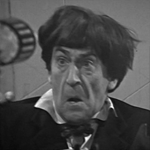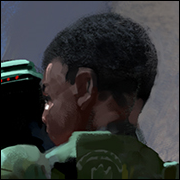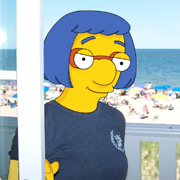|
Xotl, that was great. Thank you! E: If one were to read one MacDonald book, I take it that The Executioners would be the best / most representative sample? uberkeyzer fucked around with this message at 03:58 on Mar 17, 2019 |
|
|
|

|
| # ? May 1, 2024 23:19 |
Mel Mudkiper posted:Or, if you are Eagleton, "how much does it make us want to smash the system" Just came across this line in Eagleton's book that seems on point "Some texts are born literary, some achieve literariness, and some have literariness thrust upon them."
|
|
|
|
|
Not to step too far away from the current discussion, but those excerpt from DODO had me wondering: are there iconic instances of books where the prose is subjectively "bad" by technical or widely accepted aesthetic standards, but work in favor of the thematic "goal" of the book, and succeed in creating an artistic whole? Maybe that's a dumb question, and admittedly I don't know that I have the literary vocabulary to express my question any better, but hopefully I got across what I'm asking.
|
|
|
|
|
MockingQuantum posted:Not to step too far away from the current discussion, but those excerpt from DODO had me wondering: are there iconic instances of books where the prose is subjectively "bad" by technical or widely accepted aesthetic standards, but work in favor of the thematic "goal" of the book, and succeed in creating an artistic whole? do you mean something like "Flowers for Algernon"?
|
|
|
Tim Burns Effect posted:do you mean something like "Flowers for Algernon"? I guess so, yes. I hadn't thought of it, but it is kind of emblematic of what I'm describing. To dig in a little deeper, I suppose I was just curious reading those DODO excerpts whether there was any artistic justification for some of those prose choices. I've never read the book, so the answer may be a simple "not really", but in general I'm just as interested in exploring when genre fic succeeds in reaching some artistic merit, even if it's through an unorthodox approach, as I am in dissecting what it does wrong. Not to say that isn't anybody else's aim, I just know I can probably find a lot of reasons why any given fantasy or sci-fi novel are bad or unsuccessful, but I personally couldn't always spot the diamonds in the rough or articulate why a given passage or element of a book is successful. Edit: this is tangentially related at best but for example, The Dispossessed seems to be commonly acknowledged as literary scifi with some degree of artistic merit, and it definitely impacted me when I read it, but I couldn't break down what it did well. I'd love to see someone dig into what it accomplishes and how. MockingQuantum fucked around with this message at 04:31 on Mar 17, 2019 |
|
|
|
|
FactsAreUseless posted:Literature doesn't have to be thematic - I'd suggest looking at an author like Daniel Orozco whose stories focus on experience, not theme. Literature needs to have good prose, but otherwise there's a wide range of things it can do. This is off-topic, but I'll recommend Daniel Orozco's short story collection Orientation at every opportunity, so... yeah. If you like short stories at all, go read Orientation.
|
|
|
|
FactsAreUseless posted:Literature doesn't have to be thematic - I'd suggest looking at an author like Daniel Orozco whose stories focus on experience, not theme. Literature needs to have good prose, but otherwise there's a wide range of things it can do.  I wonder if this is still "dumb as poo poo?"
|
|
|
Nerdburger_Jansen posted:
The problem you run into with fantasy is that you run into a lot of unrelatable silliness.
|
|
|
|
|
Nerdburger_Jansen posted:
Out of curiosity, I just read Orozco's story "Orientation" for context, and I would hardly call it a themeless piece of writing.
|
|
|
|
uberkeyzer posted:Xotl, that was great. Thank you! Thanks, glad you liked it.  I hope it prompts people to check out an author I greatly respect and perhaps sparks some discussion. I hope it prompts people to check out an author I greatly respect and perhaps sparks some discussion.If we're talking "best", I don't think The Executioners is it, although I should really point out that I'm in the vast minority there: most fans of his consider it one of his best, if not his outright best, so I don't think you're likely to go wrong even if I'm meh on it. It certainly has a lot of common MacDonald themes: the non-action hero lead stumbling into a situation he's not equipped for, the atavistic antagonist, the ruminations on modern American society. If you want to see him at what I think is his finest, I'd pick 1952's The Damned, which is another multiple-perspective narrative. It's about a diverse cast of characters who wind up stuck at a broken-down ferry crossing at the Mexico border (MacDonald, who spent some years in Mexico, would feature the country a lot in his stories). You've got a mix of innocents and criminals and hard-luck cases becoming jammed up at this crossing, and I think he handles it beautifully. Also strong is The Only Girl in the Game, and I'm rather fond of All These Condemned. Lastly, I think The End of the Night is not just interesting to talk about but a fine novel. Since his most famous creation by far is Travis McGee, you'd also be good to start with the first one in that series, The Deep Blue Good-by. I plan to tackle that one later if I feel the interest is there. Xotl fucked around with this message at 05:52 on Mar 17, 2019 |
|
|
|
Xotl posted:Since his most famous creation by far is Travis McGee, you'd also be good to start with the first one in that series, The Deep Blue Good-by. I plan to tackle that one later if I feel the interest is there. I'd be interested! That was a good post and I'd like to read more. That first passage about the executions was impressive -- pulpy, sure, but effective and clearly written with full authorial control.
|
|
|
Xotl posted:Thanks, glad you liked it. Keep posting! It's interesting stuff and I'm glad to see more people posting! I have a different book to review tomorrow as I need to drag Way of Kings out of my flooded house.
|
|
|
|
|
TheGreatEvilKing posted:my flooded house
|
|
|
|
Antivehicular posted:This is off-topic, but I'll recommend Daniel Orozco's short story collection Orientation at every opportunity, so... yeah. If you like short stories at all, go read Orientation.
|
|
|
|
Sham bam bamina! posted:Yes. I'm not sure what FactsAreUseless means by a text not being "thematic". Anything that a text communicates to a reader is a theme. If anything means anything at all, no matter how trivial or even literal, that's a theme. It is unavoidable in human communication. edit: but at a certain point it's just relitigating the "what is literature" question, which I'm assuming was more than sufficiently addressed in the last thread so I'll drop it Nerdburger_Jansen posted:
|
|
|
FactsAreUseless posted:What are you talking about? he's been doing a bad gimmick for a while
|
|
|
|
|
FactsAreUseless posted:It's not as though you can write anything that doesn't have themes, but Orozco has talked about how seeks to capture specific experiences rather than set out to explore a theme. It's not that one is a better approach than the other, I just think the defining element of literature is the prose, not its thematic depth. Also, hey Nerdburger: FactsAreUseless posted:It's not as though you can write anything that doesn't have themes
|
|
|
|
Sham bam bamina! posted:Oh yeah, thematic depth doesn't have to be the focus of a text. Thanks for clarifying.
|
|
|
FactsAreUseless posted:Yeah sorry, I'm not always great at expressing my thoughts w/r/t books. new forum title please
|
|
|
|
|
MockingQuantum posted:Not to step too far away from the current discussion, but those excerpt from DODO had me wondering: are there iconic instances of books where the prose is subjectively "bad" by technical or widely accepted aesthetic standards, but work in favor of the thematic "goal" of the book, and succeed in creating an artistic whole? In Foucault's Pendulum, there's a part where the protagonist finds his friend's notes including his attempts at writing, the texts are intentionally of a lesser quality than the main prose but they are important in a narrative and thematic sense
|
|
|
|
Also, I've been meaning to talk about this for a while. It seems that in anglo schools there's a lot of emphasis in analyzing a text for themes and while I don't think it's a bad excercise, maybe it's a bit too much for young kids. Here in my country in South America the main focus of literature classes in primary and secondary school is mastery of the language (and that's the metric by which a book is considered proper literature) and you're supposed to just enjoy the books because the language conveys meaning in an aesthetically interesting way; later in school we go a bit into style/prose but I didn't touch thematic analysis until college, when you're taking specific lit courses and wanna delve into theme, genre, symbolism, semiotics, etc. Somewhere in the old thread someone mentioned that making high school kids in the US do thematic analysis kinda burns them on good books because it makes them think that reading *real* literature is homework and it kinda made sense but since I don't live there I don't have a good perspective on the issue, only my outsider view
|
|
|
|
There is a "literature is homework!" aspect to it, but a far larger problem is textbooks and teachers that aggressively push the One True Meaning of the work in question - often one that is exceedingly unlikely or even impossible to have been intended. This can range from "prominent use of the color blue always means that the author was suffering from depression, while red invariably signifies that the story is an allegory for anger management" through "the Mask of The Red Death is about the futility of the First World War" to "A Tale Of Two Cities is about Charles Dickens's struggle with his closeted homosexuality". All of these are things I was "taught" in school literature classes. All of them, of course, are absolutely ludicrous notions - although the last one was at least supported with some decent reasoning. This is a recipe for students to not just dislike "literature" (however you define the term), but to view the entire field of literary analysis as a pretentious circlejerk.
|
|
|
|
|
Pacho posted:Somewhere in the old thread someone mentioned that making high school kids in the US do thematic analysis kinda burns them on good books because it makes them think that reading *real* literature is homework this is 100% true
|
|
|
|
Gnoman posted:"prominent use of the color blue always means that the author was suffering from depression, while red invariably signifies that the story is an allegory for anger management" through "the Mask of The Red Death is about the futility of the First World War" to "A Tale Of Two Cities is about Charles Dickens's struggle with his closeted homosexuality". Yikes
|
|
|
|
Where did you go to school? Jesus Christ.
|
|
|
|
i do kind of wish people could get over this, like, 'i had one bad teacher so i wrote off a whole field' angst. but as a teacher, i can understand why the grudge seems to persist.
|
|
|
|
|
Milkfred E. Moore posted:i do kind of wish people could get over this, like, 'i had one bad teacher so i wrote off a whole field' angst. but as a teacher, i can understand why the grudge seems to persist. I think it's something that a lot of people can hold grudges about, but it's always kind of odd/sad to me that literature (and possibly the arts in general?) is the one where people take this "one bad teacher" grudge to mean the entire endeavor is stupid and worthless. I had a pretty lovely physics teacher in high school and never really pursued the field afterwards, but that didn't turn me into a geocentrist.
|
|
|
Antivehicular posted:I think it's something that a lot of people can hold grudges about, but it's always kind of odd/sad to me that literature (and possibly the arts in general?) is the one where people take this "one bad teacher" grudge to mean the entire endeavor is stupid and worthless. I had a pretty lovely physics teacher in high school and never really pursued the field afterwards, but that didn't turn me into a geocentrist. I think it's partly that it's a more subjective field, partly that it tends to be a refuge for poor and underqualified teachers. Lord knows the ability to read and think critically is not common. In many schools the people supposedly teaching literature can't do it, so you end up with a spectacle equivalent to someone who can't count on their fingers being asked to teach math. The kids realize they're being conned, even if they don't know precisely how, and welp
|
|
|
|
|
I was fortunate to have highschool teachers that were pretty good at teaching lit but I've known people who got real turned off from books in general because in highschool they'd spend like a week on stuff like, say, what does the green light mean??
|
|
|
|
Hieronymous Alloy posted:I think it's partly that it's a more subjective field, partly that it tends to be a refuge for poor and underqualified teachers. Lord knows the ability to read and think critically is not common. In many schools the people supposedly teaching literature can't do it, so you end up with a spectacle equivalent to someone who can't count on their fingers being asked to teach math. The kids realize they're being conned, even if they don't know precisely how, and welp This is sad but it’s true. I studied to be a secondary English teacher (dropped it like a hot potato in the middle of student teaching when I realized I actively loathe classroom management and also that Kids These Days loving suck) but I had at least a handful of fellow masters in education students who actively sucked rear end at understanding literature themselves. Some were even vocal about thinking the classics were “overrated” or not that important. Also a shocking number of English teachers hate poetry and refuse to teach it any more than they’re required to (so, sometimes literally not at all). I can’t fathom why you would become an English teacher if you actively dislike one of the three main forms of literature. Like, it would be totally ridiculous for an English teacher to hate fiction or hate drama, but it’s acceptable for some reason for them to hate poetry.
|
|
|
|
Doctor Faustine posted:I prefer the term “pulp” to mean “thing bad” and “literary” to mean “thing good,” where either can be applied to any genre. So within fantasy you’d have pulp fantasy (Sanderson, Gurm, Rothfuss, honestly most fantasy because most fantasy sucks rear end) and literary fantasy (LeGuin, Peake). And naturally some poo poo that’s kind of in the middle. Pulp fantasy absolutely includes Robert Howard, Lieber, and Jack Vance, though, all of who may have disputable literary value but aren't "thing bad"
|
|
|
|
Xotl's posts are exactly the sort of thing I was hoping to see from this new thread. I hope to see more of them, from more people.MockingQuantum posted:Not to step too far away from the current discussion, but those excerpt from DODO had me wondering: are there iconic instances of books where the prose is subjectively "bad" by technical or widely accepted aesthetic standards, but work in favor of the thematic "goal" of the book, and succeed in creating an artistic whole? I doubt it, but I can't say for certain that there aren't. For context, the quoted section of D.O.D.O. is written from the perspective of a character trapped in a stressful situation, and also in 1850s England, writing in haste with a fountain pen, which is the diegetic reason for the struck-out text. D.O.D.O. is an epistolary novel written from multiple different perspectives which increasingly crowd out this first one, which range in style from diary entry to letter to bureaucratic report to chat log. My personal favorite POV comes from letters written by a native of 1603 London, which is distinct in style from everything else given the time period (though it may not be historically accurate). I don't get the sense of deliberate stylization from the quoted section; it's more likely that what bothered OnsetOutsider are either the result of then-58-year-old Stephenson attempting to write much younger characters, or otherwise unrelated mistakes. Solitair fucked around with this message at 18:19 on Mar 17, 2019 |
|
|
|
I know for a lot of my friends from high school who have since "rediscovered" reading good literature, it was a combination of teachers choosing works of literature that were often dry or a touch impenetrable to a 14-year-old (I like stuff like Moby Dick but it's hardly an easy sell for a teenager with a crappy attention span and little interest in the book to begin with) and the teaching style. At least when I was in high school there was a trend towards teaching analysis as if a book was solvable or that every single symbol warranted deep and involved deconstruction, and more painfully, that there was somehow a correct solution to deep reading of a book. It's one thing to be told you got the wrong answer for an algebraic formula, where there's an explainable reason why, it's another thing to be told, by a lit teacher that you've already kind of figured out doesn't know what they're talking about, that you have the wrong answer to a heavily subjective question.
|
|
|
|
|
I absolutely agree with Quantum that the big failing of traditional education about literature is that it treats the text as a puzzle box to be unlocked. Nothing is as tedious and soul-draining as looking for "symbols" in a text. The two most miserable experiences I can remember in high school were The Scarlet Letter and Lord of the Flies, and both of thes books were essentially hijacked in the name of a sort of objective puzzle solving reading. I hope one day to return to those books, especially Scarlet Letter, and allow myself to find my own way through the text instead of having to decode what it means that the seaweed made a green A.
|
|
|
Mel Mudkiper posted:I absolutely agree with Quantum that the big failing of traditional education about literature is that it treats the text as a puzzle box to be unlocked. Nothing is as tedious and soul-draining as looking for "symbols" in a text. I'm sort of lucky that I dodged both of those, I got to see Frankenstein and To Kill A Mockingbird murdered instead, and I had read both before they got forcibly deconstructed, so at least I had a chance to enjoy them on their own merits.
|
|
|
|
|
MockingQuantum posted:I'm sort of lucky that I dodged both of those, I got to see Frankenstein and To Kill A Mockingbird murdered instead, and I had read both before they got forcibly deconstructed, so at least I had a chance to enjoy them on their own merits. Fortunately I didn't recall hating the experience of reading TKAM, which is ironic, because in adulthood I do really dislike the book
|
|
|
|
Mel Mudkiper posted:It isnt, that is my point. Can you expand on this? Because it seems obviously wrong to me.
|
|
|
|
Solitair posted:I doubt it, but I can't say for certain that there aren't. For context, the quoted section of D.O.D.O. is written from the perspective of a character trapped in a stressful situation, and also in 1850s England, writing in haste with a fountain pen, which is the diegetic reason for the struck-out text. D.O.D.O. is an epistolary novel written from multiple different perspectives which increasingly crowd out this first one, which range in style from diary entry to letter to bureaucratic report to chat log. The reports and chat logs are definitely examples of intentional bad writing, like this, for example: quote:DODO WHITE PAPER This single white paper goes on for another couple pages! A lot of this material is at least partially intended to be a satire of military bureaucracy, which is such a limp and dated target for parody that I imagine it was constructed primarily as a diegetic excuse for bad writing and exposition dumps. Solitair posted:My personal favorite POV comes from letters written by a native of 1603 London, which is distinct in style from everything else given the time period (though it may not be historically accurate). Can you quote it?
|
|
|
|
whoops, double post
|
|
|
|

|
| # ? May 1, 2024 23:19 |
Mel Mudkiper posted:Fortunately I didn't recall hating the experience of reading TKAM, which is ironic, because in adulthood I do really dislike the book but you see, Boo Radley is the personification of the kids' fear of becoming adults and the death of their childhood, and you see she's called Scout because she's searching for her nascent femininity
|
|
|
|



























